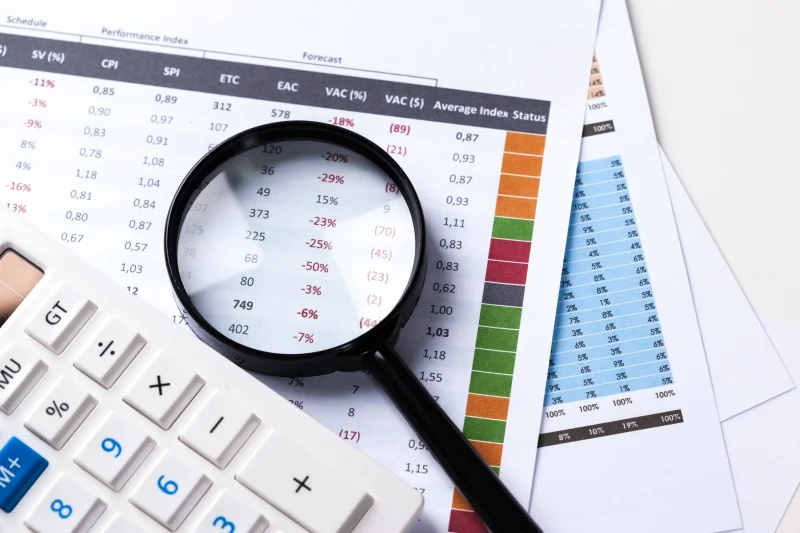
Pros and Cons of Voluntary VAT Registration in the Czech Republic

Many entrepreneurs in the Czech Republic turn to our specialists with a common question: is it more advantageous to operate as a non-VAT payer, or to voluntarily register for value-added tax? While personalized advice is always best, and you can request it via the contact form on the 360WEDO website, this article outlines the general benefits and drawbacks of voluntary VAT registration and when it may be wiser to remain a non-payer.
For some business owners, registering as a VAT payer is a legal obligation triggered by exceeding the turnover threshold set by law. However, it is also possible to register voluntarily, even before reaching that threshold, by submitting a request to the tax authority.
Who Can Register Voluntarily as a VAT Payer — and When It Makes Sense
Voluntary VAT registration can offer real advantages for certain entrepreneurs, but it’s important to keep in mind that becoming a VAT payer also comes with legal obligations.
Moreover, the registration process itself involves several formal requirements that applicants must meet. So, what does the registration entail, and what benefits can this status bring? Let’s take a closer look.
Who Is Eligible to Become a Voluntary VAT Payer
Any individual or legal entity engaged in economic activity can apply for VAT registration, even if their annual turnover falls below the legal threshold for mandatory registration set out in § 6 of the Czech VAT Act.
As of 2025, the VAT Act introduces two thresholds. Once exceeded, these thresholds trigger VAT liability. According to § 6(1) of the Act:
“A taxable person with a registered office in the country, or a person registered under the small business regime in the country, becomes a VAT payer from the first day of the calendar year following the year in which their turnover exceeded CZK 2,000,000.”
But there’s more. Paragraph 2 of the same section adds:
“A person specified in paragraph 1 becomes a VAT payer on the day following the date the threshold was exceeded, if they have submitted a timely application and notified the tax authority of their intention to become a VAT payer from that date — or after the day on which the turnover exceeds CZK 2,536,500 within the relevant calendar year.”
In short, a business becomes liable for VAT either from the beginning of the next calendar year (after passing the CZK 2 million mark), or from the day after exceeding CZK 2,536,500 — provided they’ve submitted the application and notified the authorities accordingly.
Voluntary VAT registration is often of interest to newly formed tax entities, as well as freelancers and small businesses that haven’t yet reached high revenue levels but would still benefit from VAT payer status. This might be due to the nature of their suppliers or customer base — for example, if they work mainly with other VAT payers.
Benefits of Voluntary VAT Registration
One of the key advantages of voluntary VAT registration is the ability to claim input VAT — that is, VAT paid on goods, services, or fixed assets purchased for business purposes. For new businesses, this can significantly reduce startup costs and improve cash flow early on.
Another benefit lies in credibility. Being a VAT payer often increases trust among business partners, especially those who are also VAT payers. In many industries, companies prefer working with VAT-registered partners because they don’t have to absorb the tax themselves.
Voluntary registration is also essential for entrepreneurs planning to engage in EU trade or provide services abroad. In such cases, having a VAT identification number is often a requirement, making registration not just beneficial but necessary for international business activities.
Disadvantages of Voluntary VAT Registration in the Czech Republic
On the other hand, it’s important to consider that becoming a VAT payer brings several obligations. Newly registered VAT payers are required to submit monthly VAT returns – even for periods in which they had no taxable activity. Alongside the VAT return, audit reports must also be submitted.
VAT payers must maintain specific records and be able to verify all transactions, both incoming and outgoing. They should also be prepared for potential inspections by the tax authority, which often requests extensive documentation, particularly in the case of voluntary registrations, to confirm the legitimacy of business activity.
The Czech VAT Act is a complex piece of legislation and requires a solid understanding of tax law. For this reason, it’s highly recommended to consult a specialist when dealing with tax-related matters. Poor accounting can lead to costly mistakes, additional tax liabilities, and penalties imposed by the authorities.
By partnering with 360WEDO, you gain access to expert guidance and the peace of mind that your business is operating efficiently and in full compliance with the law. We can also handle your accounting needs, so you can focus on growing your business.

How Does Registration Work and What Does the Tax Authority Require?
Voluntary VAT registration is completed through an electronic form available on the MOJE daně portal (www.mojedane.cz). In addition to basic identification information, applicants must specify the reasons for requesting registration. However, simply submitting the form is often not enough — the tax office typically requires additional supporting documents.
To streamline the process, applicants can also submit the so-called “Annex to the Application for VAT Registration,” which is available for download on the tax authority’s website. This document allows for the inclusion of supplementary information in advance.
The tax office usually asks for evidence of economic activity, such as signed contracts, purchase orders, issued invoices, proof of a functioning website, or confirmation of current business operations. In some cases, the office may conduct telephone or in-person checks. Applicants must be able to demonstrate that they are reliable and actively conducting business.
The registration decision is typically issued within 30 days, but approval is not guaranteed. Especially in cases of voluntary registration, the final decision is always at the discretion of the tax authority.
Who Benefits from Voluntary VAT Registration in the Czech Republic
Voluntary VAT registration is most advantageous for entrepreneurs planning significant initial investments who want to benefit from VAT deductions, or for those doing business with VAT-registered partners and seeking to avoid the 21% VAT surcharge, which their customers would otherwise not be able to reclaim.
On the other hand, entrepreneurs who sell directly to end consumers – for example, B2C online retailers – may find that VAT registration unnecessarily increases the final price of their goods or services.
Ultimately, whether voluntary VAT registration makes sense depends on the specific circumstances and partner structure of each business. That’s why it’s always wise to consult with an accountant or tax advisor before starting the registration process.
Need help deciding whether VAT registration is right for you?
360WEDO’s tax consultants and accounting experts in the Czech Republic are here to guide you every step of the way – from evaluating your case to handling the full registration process. Get in touch via our website and book your consultation today.
https://www.podnikatel.cz/clanky/registrace-k-dph-u-dobrovolnych-platcu
How to get started with 360 WEDO?
Send us the form and our specialist will contact you shortly




